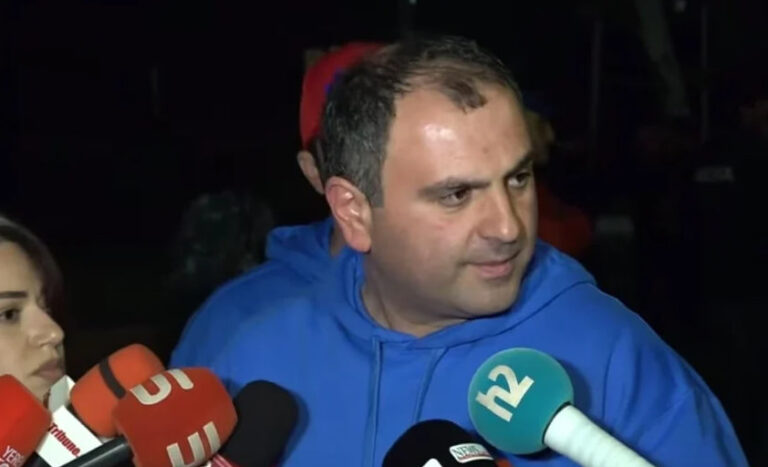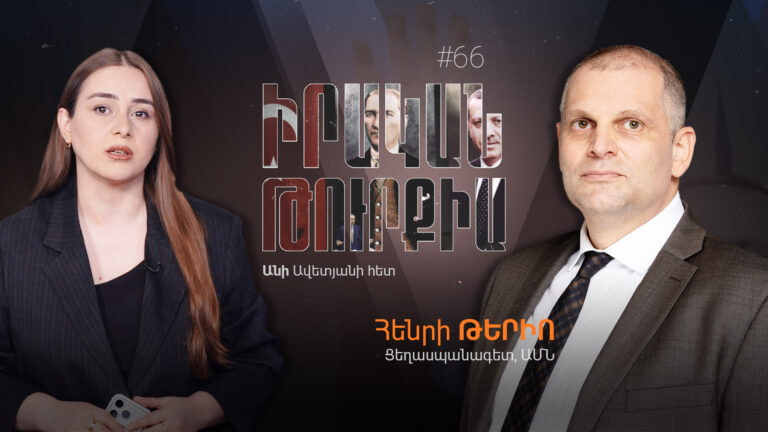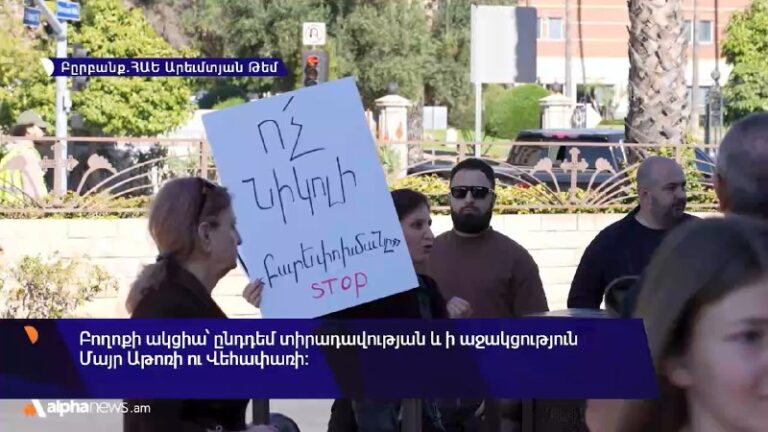‘Hiding from the enemy, I sneaked into my house and took precious belongings’: Artsakh exodus #22
November 10 2023, 22:00
As a result of the 44-day war, the family of Narine Grigoryan lost their home in Shushi. And three years later, after Azerbaijan’s attack on September 19, Narine’s family was forced to leave their house in the Krkzhan district of Stepanakert, which they received after the 44-day war.
Speaking to Alpha News, Narine recalls that from their house in Shushi they could see the Saint Ghazanchetsots and Kanach Zham churches. Feeling homesick, the Grigoryans wanted to have a view of Shushi from the windows of their house in Stepanakert.
“I was one of the first to return to Artsakh after the 2020 war,” said Narine, adding that the primary goal was not to get housing but a place where she would continue her work. Before the 44-day war, Narine worked as a teacher in the preschool department of the Khachatur Abovyan secondary school in Shushi.
“After returning to Artsakh, I showed the area to our management and said that I wanted to continue my work as a teacher from Shushi. I wanted to keep the name of the town. It was important for me to work with children who were displaced from Shushi and Hadrut,” Narine said.
On September 19, when Azerbaijan launched an attack on Artsakh, Narine was at work. She recalls that due to the blockade, classes were short and lasted until 12:30am. The parents had already come after their children, but they did not manage to leave the school as they heard the first blasts. The blasts did not stop, and everyone hid in the school basement.
“It was terrible; my daughter studied at another school. I did not know who to worry about. We stayed in the basement until we left Artsakh on September 25, because our house was very close to the enemy’s posts. It was not only us who lived in the basement; there were also some other people from the neighborhood. I worked with children during the day. It was a vague situation. Men were guarding outside because the enemy could enter the city every minute. There was no ceasefire in those days. One day I wanted to go to our home, but the military did not allow me to go, because the enemy snipers were sitting above us. But I was familiar with the area; I sneaked into our house through the forest to at least take the Artsakh flag, the Bible, a picture of Ghazanchetsots, and other necessary documents, at least to have something as a memory,” Narine said.
Narine and her 8-year-old daughter had to leave Artsakh on September 25; two days later, they were already in Yerevan. Other family members left Artsakh on September 30. Narine said that she went to the Artsakh representative office to ask Foreign Minister Sergey Ghazaryan to allow her to go to Artsakh with the bus drivers, but the Foreign Minister did not allow her to go due to security reasons.
“I wanted to enjoy the last minute and then leave. I believe that Artsakh will be Armenian again. Yes, I want to return, but not as part of Azerbaijan, because before the first Artsakh war, we lived under the control of Azerbaijan. There was one Armenian family and five Azerbaijani families in our neighborhood. At that time, our police chief was an Azerbaijani. They were always saying that it was their territory, their road, and they alone could drive on it. My father always argued with them because of this. And when the Armenians came from Baku, my uncle was also among them. The Azerbaijanis gathered at night, attacked our house and beat my uncle. They tried to intimidate him so that he would go to another country like others, but they failed. I remember well how my father beat the Azerbaijani police chief. It made a big impression on me. But I repeat, I will go to Artsakh if it is not part of Azerbaijan; back then, it was different. Now we are living in completely different times,” she said.
Narine and her family now live on rent in the Kanaker-Zeytun administrative district of Yerevan. After moving to Armenia, Narine thought of finding some area where she could continue the work she left unfinished in Stepanakert. First, she applied to the district administration to find an area, but the district administration has not provided any assistance so far. She rented a place with her own funds, where she works with children from Artsakh.
“Every day when I take my daughter to school, I see how the children of Artsakh are facing difficulties. I want to help them. I have been renting a place for a few days, and I am working with the children from Artsakh. I can imagine very well what they feel right now. On the very first day, the kids said that the classroom was similar to what they had in Artsakh. I tried to recreate the spirit of Artsakh here as well. Now I have 20 students; I have not worked with any of them before, my former students are now in different places. But my goal is not only to work with the Artsakh kids. I would also like to work with the locals,” Narine said.
Narine hopes and believes that one day she will live in Artsakh again, but until then, she expects that the Armenian government will help her pay rent for the classroom because the financial burden is very heavy.








